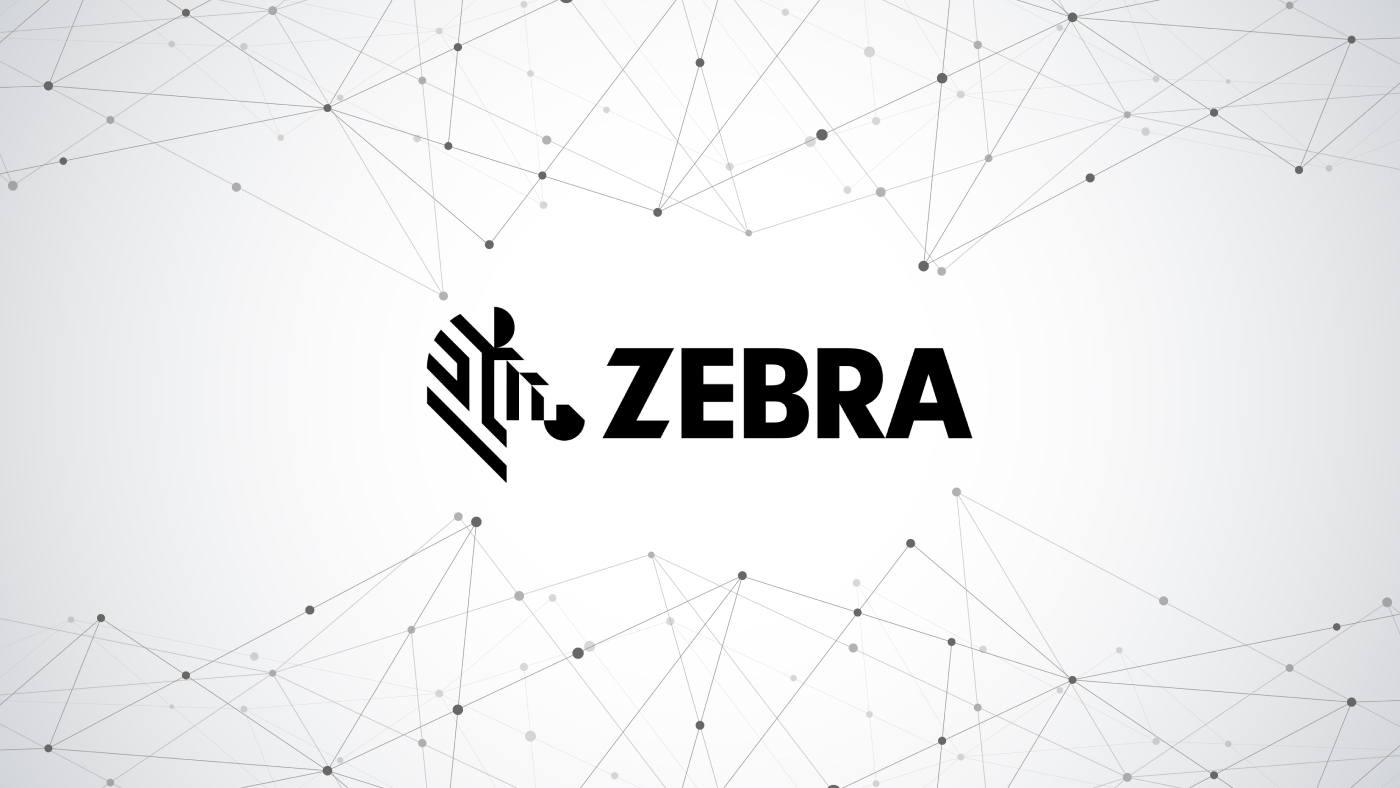
Westcon-Comstor doubles down on security to help channel partners specialize and compete in EMEA and APAC.

Climb Global Solutions reports 73% YoY sales growth in Q2 2025; CEO Dale Foster shares insights on scaling, ERP gains, marketplace focus, and vendor strategy.

Tech4Change names new board, aims to expand grassroots fundraising; leaders from Titan Cloud, Informa Connect, and more join 2025–2027 council.

GTIA's first ChannelCon spotlights IT channel growth with new grants, MSP resources, and diversity programs empowering the next-gen tech workforce.

GTDC CEO Frank Vitagliano shares insights on vendor onboarding, distribution's evolving role, and platforms shaping the IT channel’s future.

Zebra opens new ANZ HQ and expanded Experience Centre in Melbourne to meet rising demand, boost partner support, and showcase tech innovations.

SailPoint launches Accelerated Application Management to boost compliance with AI-driven discovery, zero-touch onboarding, and automated governance.

ConnectWise partners with Proofpoint to launch AI-powered email security & training on Asio, helping MSPs boost protection, revenue & efficiency.

RegScale triples ARR as channel partners expand its automated GRC platform, modernizing compliance and risk management for enterprises and federal clients

Sherweb launches CyberMSP Community, offering MSPs tools, guidance, and scalable programs to deliver customized, real-time cybersecurity.

Arctic Wolf’s 2025 outlook shows MSP opportunities as insurers tackle ransomware threats and emerging AI risks through expanded security partnerships.

Brivo and Envoy partner to unify access control & visitor management, delivering scalable, compliant, and secure workplace experiences.

WitnessAI launches Witness Attack and Witness Protect to test and defend enterprise LLMs against vulnerabilities and real-time threats.

Databricks secures Series K funding at $100B+ valuation to expand AI agents, Lakebase, and global growth amid soaring enterprise AI demand.

AI boosts efficiency but frustrates customers—channel partners must guide adoption to protect CX and trust.

Employees want AI (61% say it boosts productivity more than office perks) yet only half feel supported, creating space for MSPs to guide adoption.

Deepgram expands AWS partnership to scale enterprise voice AI with deeper integration, co-selling, and compliance-focused deployment at global scale.

MinIO launches MinIO Academy to train IT pros and partners on AIStor, delivering expert-led courses for AI-driven object storage mastery.

Qbeast nets $7.6M seed funding to power cost-efficient, high-performance analytics for enterprises using open data lakehouse tools.

Storage Guardian cut its data center footprint by 80% with StorONE. CEO Omry Farajun explains how efficiency and flexibility drive modern MSP success.

GTT survey shows rising private cloud demand driven by security, compliance, and AI needs, offering partners new opportunities to guide migration.

Nerdio’s MSPs navigate device refreshes, tariffs, and virtualization, advising clients through uncertainty with Azure Virtual Desktop and Windows 365.

DartPoints secures $250M investment to scale data center growth, expand infrastructure, and boost digital services across Tier 2 and Tier 3 markets.




- Channel Business Related TopicsLink to How Specialty Distributor Westcon-Comstor Enables Global Partners
 How Specialty Distributor Westcon-Comstor Enables Global Partners
How Specialty Distributor Westcon-Comstor Enables Global PartnersWestcon-Comstor doubles down on security to help channel partners specialize and compete in EMEA and APAC.
Link to Climb’s Dale Foster on Q2 Strength, Marketplaces & More Climb’s Dale Foster on Q2 Strength, Marketplaces & More
Climb’s Dale Foster on Q2 Strength, Marketplaces & MoreClimb Global Solutions reports 73% YoY sales growth in Q2 2025; CEO Dale Foster shares insights on scaling, ERP gains, marketplace focus, and vendor strategy.
Link to Tech4Change: New Leadership for Channel-Driven Nonprofit Tech4Change: New Leadership for Channel-Driven Nonprofit
Tech4Change: New Leadership for Channel-Driven NonprofitTech4Change names new board, aims to expand grassroots fundraising; leaders from Titan Cloud, Informa Connect, and more join 2025–2027 council.
Link to GTIA Centers Channel’s Future Around Community GTIA Centers Channel’s Future Around Community
GTIA Centers Channel’s Future Around CommunityGTIA's first ChannelCon spotlights IT channel growth with new grants, MSP resources, and diversity programs empowering the next-gen tech workforce.
Link to Frank Vitagliano on GTDC Research & Future of Platforms Frank Vitagliano on GTDC Research & Future of Platforms
Frank Vitagliano on GTDC Research & Future of PlatformsGTDC CEO Frank Vitagliano shares insights on vendor onboarding, distribution's evolving role, and platforms shaping the IT channel’s future.
Link to Zebra Technologies Eyes A/NZ Growth With New HQ Zebra Technologies Eyes A/NZ Growth With New HQ
Zebra Technologies Eyes A/NZ Growth With New HQZebra opens new ANZ HQ and expanded Experience Centre in Melbourne to meet rising demand, boost partner support, and showcase tech innovations.
- Security Link to SailPoint Intros Accelerated Application Management Solution
 SailPoint Intros Accelerated Application Management Solution
SailPoint Intros Accelerated Application Management SolutionSailPoint launches Accelerated Application Management to boost compliance with AI-driven discovery, zero-touch onboarding, and automated governance.
Link to ConnectWise Partners with Proofpoint on Security in Asio ConnectWise Partners with Proofpoint on Security in Asio
ConnectWise Partners with Proofpoint on Security in AsioConnectWise partners with Proofpoint to launch AI-powered email security & training on Asio, helping MSPs boost protection, revenue & efficiency.
Link to RegScale CRO on Channel Growth in Risk & Compliance RegScale CRO on Channel Growth in Risk & Compliance
RegScale CRO on Channel Growth in Risk & ComplianceRegScale triples ARR as channel partners expand its automated GRC platform, modernizing compliance and risk management for enterprises and federal clients
Link to Sherweb Expanding Portfolio Offerings With Expert Guidance Sherweb Expanding Portfolio Offerings With Expert Guidance
Sherweb Expanding Portfolio Offerings With Expert GuidanceSherweb launches CyberMSP Community, offering MSPs tools, guidance, and scalable programs to deliver customized, real-time cybersecurity.
Link to Arctic Wolf Research: Cyber Insurance Driving Security Needs Arctic Wolf Research: Cyber Insurance Driving Security Needs
Arctic Wolf Research: Cyber Insurance Driving Security NeedsArctic Wolf’s 2025 outlook shows MSP opportunities as insurers tackle ransomware threats and emerging AI risks through expanded security partnerships.
Link to Brivo Launching New Solution to Boost Security Suite Brivo Launching New Solution to Boost Security Suite
Brivo Launching New Solution to Boost Security SuiteBrivo and Envoy partner to unify access control & visitor management, delivering scalable, compliant, and secure workplace experiences.
- AI Related TopicsLink to WitnessAI Launches Red-Teaming and AI Firewall Tools
 WitnessAI Launches Red-Teaming and AI Firewall Tools
WitnessAI Launches Red-Teaming and AI Firewall ToolsWitnessAI launches Witness Attack and Witness Protect to test and defend enterprise LLMs against vulnerabilities and real-time threats.
Link to Databricks Raises at $100B+ Valuation on AI Momentum Databricks Raises at $100B+ Valuation on AI Momentum
Databricks Raises at $100B+ Valuation on AI MomentumDatabricks secures Series K funding at $100B+ valuation to expand AI agents, Lakebase, and global growth amid soaring enterprise AI demand.
Link to AI Customer Service Fails to Satisfy Consumer Needs: Verizon AI Customer Service Fails to Satisfy Consumer Needs: Verizon
AI Customer Service Fails to Satisfy Consumer Needs: VerizonAI boosts efficiency but frustrates customers—channel partners must guide adoption to protect CX and trust.
Link to GoTo Pulse Survey Shows AI Promise, Highlights Gaps to Fill GoTo Pulse Survey Shows AI Promise, Highlights Gaps to Fill
GoTo Pulse Survey Shows AI Promise, Highlights Gaps to FillEmployees want AI (61% say it boosts productivity more than office perks) yet only half feel supported, creating space for MSPs to guide adoption.
Link to Deepgram Teams With AWS on Voice AI Deployment Deepgram Teams With AWS on Voice AI Deployment
Deepgram Teams With AWS on Voice AI DeploymentDeepgram expands AWS partnership to scale enterprise voice AI with deeper integration, co-selling, and compliance-focused deployment at global scale.
Link to MinIO Debuts Academy With AI Partner Enablement MinIO Debuts Academy With AI Partner Enablement
MinIO Debuts Academy With AI Partner EnablementMinIO launches MinIO Academy to train IT pros and partners on AIStor, delivering expert-led courses for AI-driven object storage mastery.
- Infrastructure Related TopicsLink to Qbeast Secures $7.6M in Funding to Scale Open Data Platforms
 Qbeast Secures $7.6M in Funding to Scale Open Data Platforms
Qbeast Secures $7.6M in Funding to Scale Open Data PlatformsQbeast nets $7.6M seed funding to power cost-efficient, high-performance analytics for enterprises using open data lakehouse tools.
Link to Storage Guardian Exec on Infrastructure Builds With StorONE Storage Guardian Exec on Infrastructure Builds With StorONE
Storage Guardian Exec on Infrastructure Builds With StorONEStorage Guardian cut its data center footprint by 80% with StorONE. CEO Omry Farajun explains how efficiency and flexibility drive modern MSP success.
Link to GTT Research Highlights Private Cloud Demand Resurgence GTT Research Highlights Private Cloud Demand Resurgence
GTT Research Highlights Private Cloud Demand ResurgenceGTT survey shows rising private cloud demand driven by security, compliance, and AI needs, offering partners new opportunities to guide migration.
Link to Nerdio’s Will Omnisky on AVD & Windows 365 Opportunity Nerdio’s Will Omnisky on AVD & Windows 365 Opportunity
Nerdio’s Will Omnisky on AVD & Windows 365 OpportunityNerdio’s MSPs navigate device refreshes, tariffs, and virtualization, advising clients through uncertainty with Azure Virtual Desktop and Windows 365.
Link to DartPoints Secures $250M to Expand Data Center Reach DartPoints Secures $250M to Expand Data Center Reach
DartPoints Secures $250M to Expand Data Center ReachDartPoints secures $250M investment to scale data center growth, expand infrastructure, and boost digital services across Tier 2 and Tier 3 markets.
-
- Lists & Awards Top ArticlesLink to AI 50 List
 AI 50 ListChannel Insider's editorial team spotlights the top AI leaders from MSPs, vendors, and channel businesses delivering measurable outcomes.Link to CML 100 Honorees
AI 50 ListChannel Insider's editorial team spotlights the top AI leaders from MSPs, vendors, and channel businesses delivering measurable outcomes.Link to CML 100 Honorees CML 100 HonoreesCheck out our CML 100 List to discover the top channel marketing individuals who are transforming channel marketing for their organizations.Link to HSP 250 List
CML 100 HonoreesCheck out our CML 100 List to discover the top channel marketing individuals who are transforming channel marketing for their organizations.Link to HSP 250 List HSP 250 ListView our HSP250 list to see the top Hybrid Solution Providers that have proactively embraced the future of tech.Link to The 2024 Channel Insider VIP List
HSP 250 ListView our HSP250 list to see the top Hybrid Solution Providers that have proactively embraced the future of tech.Link to The 2024 Channel Insider VIP List The 2024 Channel Insider VIP ListChannel Insider sought nominations from IT vendors, solution providers, and partners to highlight impactful collaborations. Check out our top choices here.
The 2024 Channel Insider VIP ListChannel Insider sought nominations from IT vendors, solution providers, and partners to highlight impactful collaborations. Check out our top choices here. - About About





